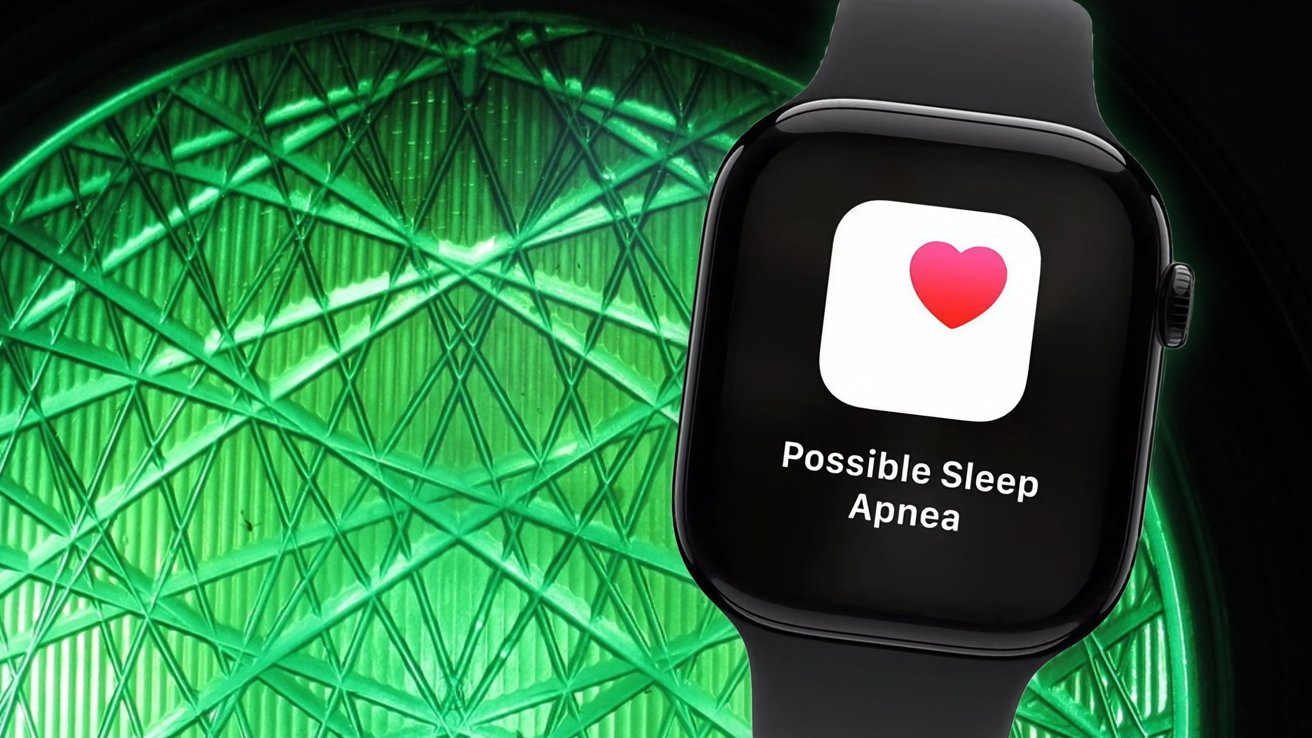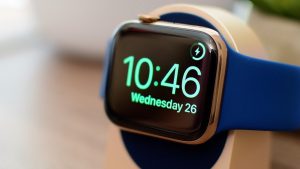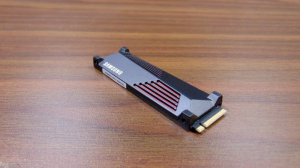
Apple Watch sleep apnea notifications

The U.S. Food and Drug Administration has approved the sleep apnea feature of the Apple Watch, just in time for the release of the Apple Watch Series 10.
During the September 9 “Glowtime” event, Apple introduced the Apple Watch Series 10, as well as the new feature, sleep apnea detection. While the feature was announced, Apple couldn’t bring it to the Apple Watch until the FDA approved it.
A 510(k) Premarket Notification in a medical device database updated on Monday reveals the FDA approved an “Over-the-counter device to assess risk of sleep apnea.” The listing doesn’t specify the Apple Watch specifically, but that is the only device in Apple’s product line that offers the feature.
The device name for the filing is “Sleep Apnea Notification Feature (SANF)” with Apple listed as the applicant. It had applied for authorization on April 4, 2024, with the decision made by the FDA on September 13.
The approval means Apple can include the software feature on its hardware.
Sleep apnea detection will be arriving on the Apple Watch Series 10, as well as the Apple Watch Series 9, and Apple Watch Ultra 2. It will roll out as a software update in September, to more than 150 countries.
About Sleep apnea
Sleep apnea is a condition that is severely undiagnosed, and is defined as either excessively shallow breathing or repetitive pauses in breathing while sleeping.
There are two diagnoses possible, consisting of obstructive sleep apnea (OSA) and central sleep apnea (CSA). OSA occurs when the airway is blocked, while CSA is when the brain fails to regulate breathing.
Typically, sleep apnea is diagnosed using a sleep study, with people monitored by professionals in a sleep clinic as the sleep overnight. It is typically an expensive process not covered by insurance, and can be impossible for some people to undertake.
It is estimated that more than a billion people around the world are affected by sleep apnea.
The Apple Watch uses its accelerometer to detect Breathing Distribances, changes to small movements at the wrist caused through normal respiratory patterns. Every 30 days, the Apple Watch analyzes disturbance data and notifies the user if there are consistent signs of moderate to severe sleep apnea.
The Apple Watch isn’t the only hardware to benefit from an FDA approval. On September 12, it cleared the AirPods Pro 2 to get clinical-grade hearing aid features in a software update.




